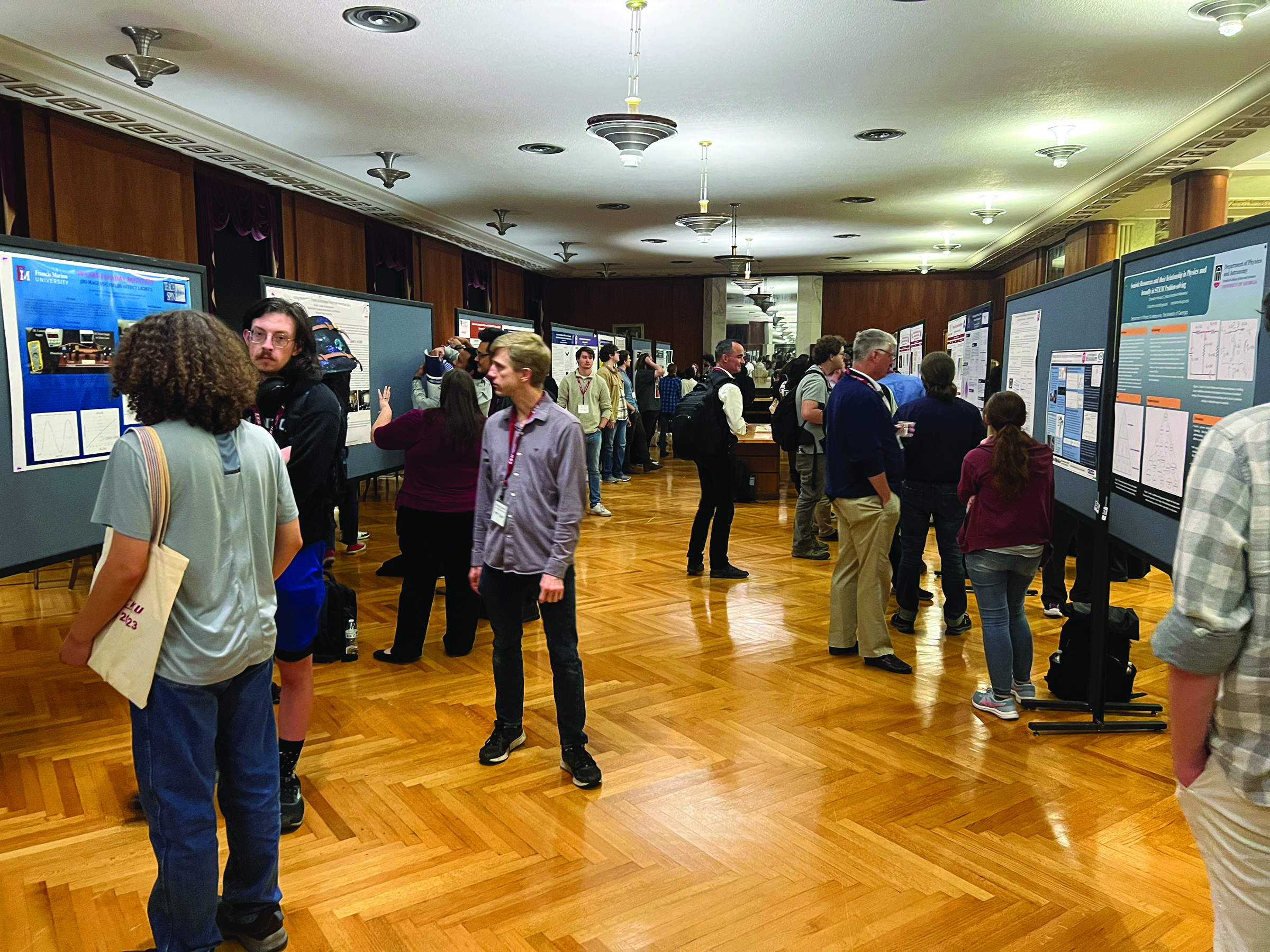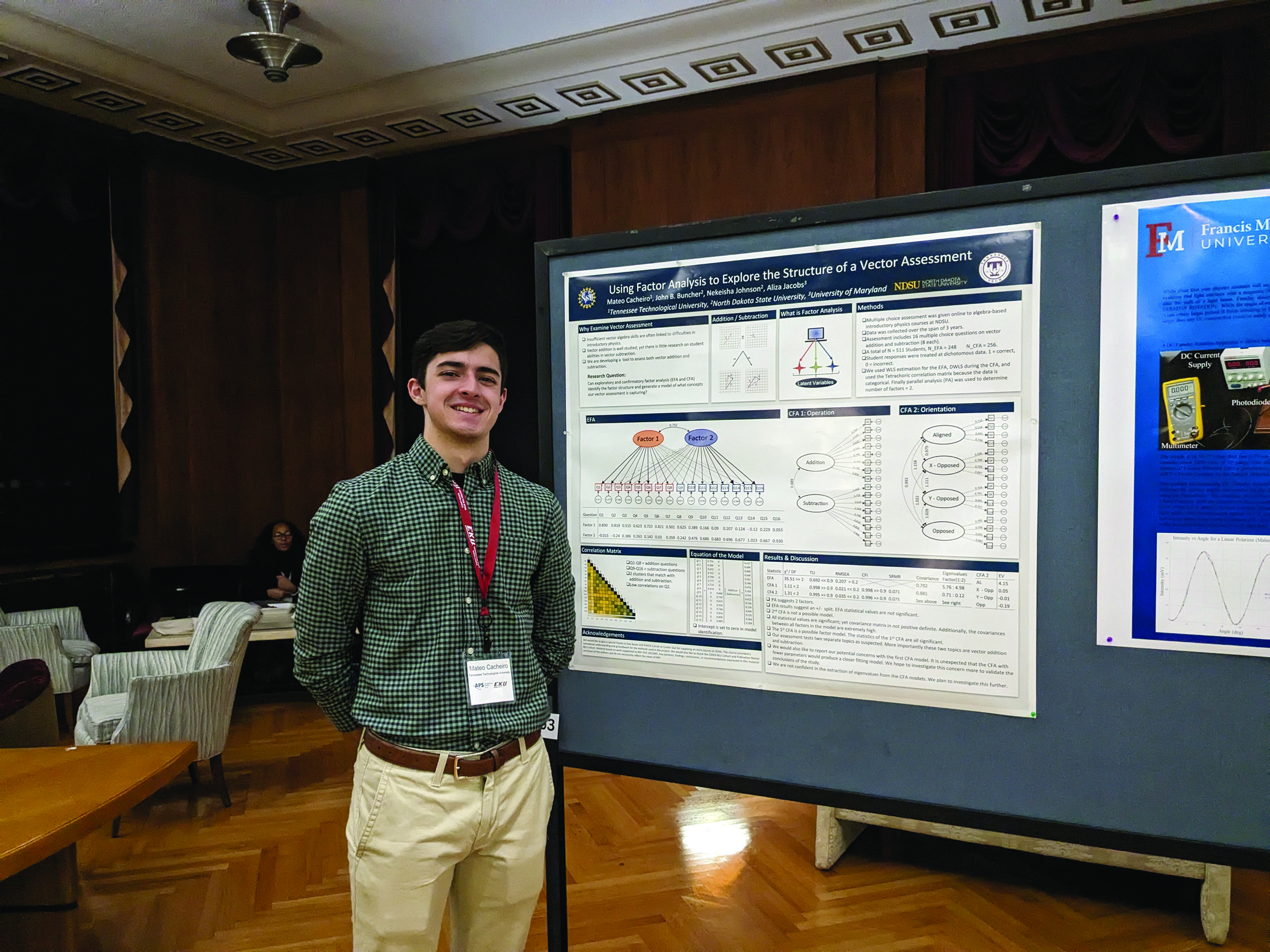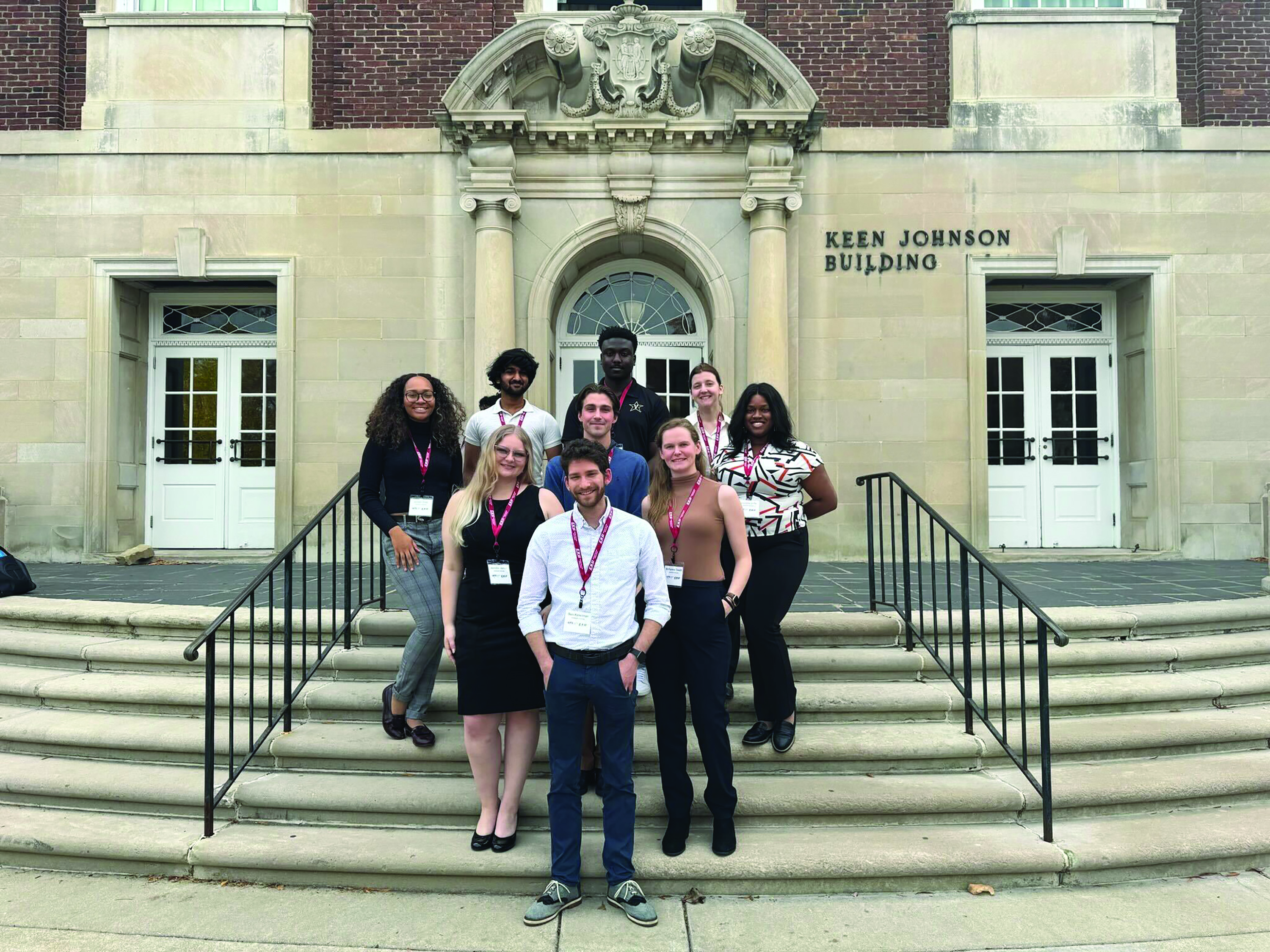A Student’s-Eye View of SESAPS
Spring
2024
Meeting Notes - SPS Reporters at Science Conferences
A Student’s-Eye View of SESAPS
At the 2023 meeting of the Southeastern Section of the American Physical Society (SESAPS), held at Eastern Kentucky University, undergraduate attendees deepened their understanding of physics, met like-minded peers, and explored new fields within the discipline. They heard eye-opening talks and participated in research presentations and poster sessions. Over the course of the three-day meeting, they learned the value of networking and engaging with fellow undergraduate students, researchers, and industry professionals.
Here, SPS student reporters recall favorite talks, reflect on finding belonging in the physics community, and discuss the conference’s broader impact on academic and professional growth.
Anran Zhao
SPS Member, University of Virginia
I attended SESAPS to engage with local researchers and gain exposure to a wider range of physics subfields than my coursework has covered. My experience could not have been better.
As a third-year physics and computer science major, I enjoyed learning about quantum computing from Prasanna Date, an Oak Ridge National Laboratory physicist. Having no prior knowledge of the topic, I particularly appreciated Date’s simple diagrams explaining the distinctions between quantum and classical computing.
During his talk, Craig Group, a professor at my school (the University of Virginia), discussed unique ways for people to become mentors in the field. “I am proud to be a mentor,” he said. “It has become the most important part of my career.” Though this surprised me, it also made sense. I’ve always thought that research and teaching come first for a university professor, but as someone who has been mentored by Professor Group, I know firsthand that he genuinely cares about the success of the students he works with.
Leah Broussard, another physicist at Oak Ridge National Lab, concluded her talk on neutron experiments with a surprise announcement—news outlets recently reported that her research had “discovered a portal to a parallel universe.” Although sadly not true, the audience laughed at this example of a clickbait title gone wrong. Another fun moment was when Broussard mentioned the Mu2e experiment at Fermilab, which I had worked on during the previous two summers. It felt as if my research was getting a shoutout of sorts.
My favorite experience at SESAPS was meeting researchers who are investigating questions in physics related to topics I’ve worked on. It was thrilling to talk about my research with people who share my passion for physics, and I’m excited to attend more conferences in the future.
Mateo Cacheiro
SPS Chapter President, Tennessee Tech
I walk through the door, take a deep breath, and find my seat. Something indescribable makes me feel welcome. Maybe it’s the presence of Mary Kidd, my classical mechanics professor and the session chair. Or it could be that Professor Larry Engelhardt, a close friend of my summer research advisor, is on the panel. While both undeniably provide a sense of belonging, something else is also at play.
The session, a panel on workforce development, begins with a sense of anticipation. The panelists introduce themselves and pose a few questions to the audience, primarily regarding the role of mentors in the development of physicists. The panel isn’t asking rhetorical questions. Instead, the inquiries are meant to spark valuable and impactful conversations, which lead to an unexpected shift in my perspective.
When I first walked in, I saw a room full of students, professors, and industry professionals. Full of highly distinguished individuals whom I would never expect to give me the time of day. Full of people who intimidated me and couldn't possibly see me as an equal.
I couldn’t have been more wrong. In fact, this isn’t even a panel discussion. It’s a group of extraordinary physicists collaborating to achieve a greater goal. The open discussions introduce new ideas and encourage individuals to share their perspectives. Speakers are seen not as students or professors but as physicists. I frequently participate in conversations, and my ideas are welcome and respected. I feel connected to the physics community like never before.
At the 2022 Physics Congress, SPS members agreed that imposter syndrome is one of the most complex challenges facing physics and astronomy students today. The collaborative environment of this innovative panel session made me feel noticed and helped me to realize that even as an undergraduate student, I am a physicist. Saying that statement is one of the biggest steps in overcoming imposter syndrome, and sessions like this one can provide an environment for taking those steps.
Savion Johnson
SPS Chapter Secretary, Vanderbilt University
My academic journey, deeply rooted in the study of nuclear physics, has been enriched by my role as the secretary of our SPS chapter and as an active member of the American Physical Society (APS). These roles have shaped my understanding of physics and fueled my passion for exploring its vast and diverse realms. This drive led me to SESAPS, an event that promised to be a convergence of knowledge, research, and innovation in the world of physics.
The wide range of topics covered at SESAPS—applied physics and engineering, cosmology, astrophysics, low-energy nuclear physics, laser physics, climate science, and diversity, among many others—provided an opportunity to delve into both familiar and unexplored areas and offered a comprehensive view of the field's current trends and research directions. Each oral session I attended opened new doors of knowledge and perspective, and pushed me to think more critically and creatively about my field of study.
The poster session was a highlight of my conference experience. While presenting my research on using machine learning to study the effects of quark-gluon plasma, I received valuable feedback from peers and experts. These interactions were learning experiences and a test of my ability to communicate complex ideas effectively.
Conferences like SESAPS provide both learning opportunities and platforms for inspiration and growth. They offer a chance to witness the frontiers of physics research, engage with thought leaders, and contribute to the ongoing discourse in the field. As I reflect on my experience at SESAPS 2023, I am filled with a sense of gratitude and motivation.
Get Funding for Conference Travel
SPS Travel Awards offer partial travel support for SPS members to attend and present their research at a national meeting of an AIP Member Society. Applications are accepted on a rolling basis. Learn more at spsnational.org/awards/travel.
SPS Reporter Awards offer partial travel support for SPS chapters or individual members to attend and report on professional physics meetings for SPS publications (like this one!). Applications are accepted on a rolling basis. Learn more at spsnational.org/awards/chapter-awards.



